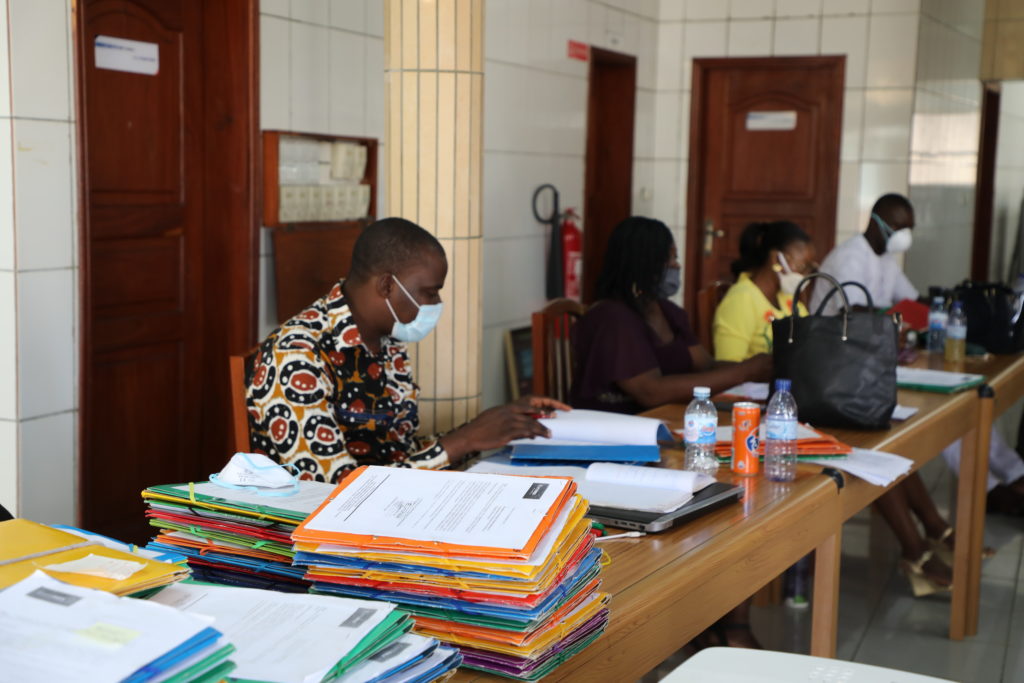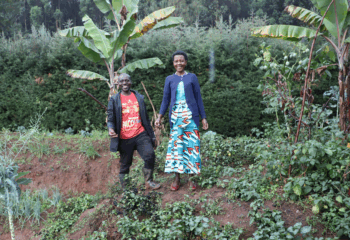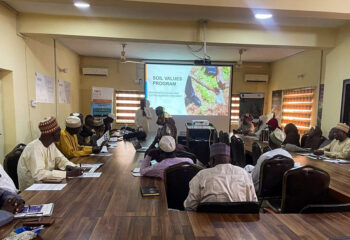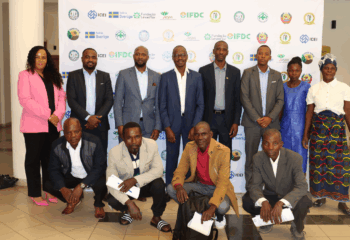
From April 20 to 24, 2020, the Departmental Directorate of Agriculture, Livestock and Fisheries (DDAEP) of Ouémé, in collaboration with the Local Government Approach to the Agricultural Market in Benin (ACMA2) program, conducted a mini-workshop to analyze producer organizations’ (POs) registration files and issue registration receipts to confirm compliance with government standards.
At the opening of the mini-workshop, the ACMA2 Chief of Party informed participants about the program’s strict compliance with COVID-19 restrictions. All of those attending practiced measures including wearing face masks, using hand sanitizers, washing hands with soap and water, and social distancing of at least 1.5 meters.
“They need to be accompanied [in this process]. And that’s exactly what ACMA2 is doing.”
Djimon Gabriel Kouglénou, Director of DDAEP Ouémé
The mini-workshop engaged 44 cooperatives and three agricultural cooperative unions, representing market players in the fish, oil, and pepper sectors of the communes of Aguégués, Bonou, and Dangbo. Of 47 files reviewed, 38 were declared receivable, and registration certificates have been issued. To finalize the nine remaining files, a field visit to Aguégués and Dangbo allowed DDAEP to collect the missing information and verify the physical and functional existence of these organizations.

“DDAEP takes care of the functionality of POs with a tool made available at the national level. The main interest is that, at the end of the process, all cooperative societies have a legal existence in accordance with the requirements of Article 18 of the OHADA Uniform Act on Corporate Law,” noted Djimon Gabriel Kouglénou, Director of DDAEP Ouémé. “They need to be accompanied [in this process]. And that’s exactly what ACMA2 is doing.”
ACMA2 Chief of Party Constant Dangbégnon added, “The ACMA2 program pays particular attention to the structuring of agricultural farmer organizations. More than 200 organizations have already benefited from our support in that way.” Dangbégnon called for greater collaboration between DDAEP and the program, which is based on the functionality of cooperatives and the sustainability of achievements.
“For us, what is important is that the revenues of the grassroots-level actors increase,” Dangbégnon said.



